News
-
 Anthropology
AnthropologyHumans used whale bones to make tools 20,000 years ago
Ancient scavengers of the beached beasts turned their bones into implements that spread across a large area, researchers say.
By Bruce Bower -
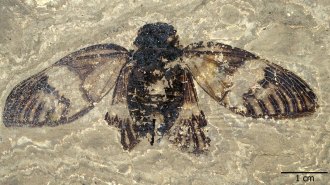 Life
LifeThe first cicada concert was 47 million years ago
A 47-million-year-old cicada fossil from Germany’s Messel Pit could teach us about the evolution of insect communication.
-
 Health & Medicine
Health & MedicineWet fingers always wrinkle in the same way
Pruney fingertips aren't swollen sponges — the wrinkles actually come from blood vessels constricting and pulling skin inward.
-
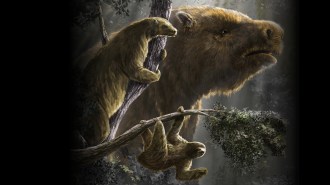 Paleontology
PaleontologySloths once came in a dizzying array of sizes. Here’s why
A new fossil and DNA analysis traces how dozens of sloth species responded to climate shifts and humans. Just two small tree-dwelling sloths remain today.
-
 Health & Medicine
Health & MedicineIt’s tricky to transplant a bladder. How surgeons finally did it
The person who received the bladder is doing well, and the successful transplant could offer hope to thousands of people with bladder dysfunction.
By Payal Dhar -
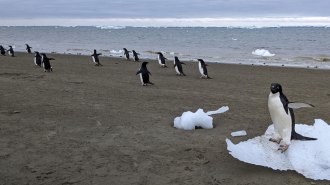 Climate
ClimatePenguin poop gives Antarctic cloud formation a boost
Penguin poop provides ammonia for cloud formation in coastal Antarctica, potentially helping to mitigate the impacts of climate change in the region.
-
 Science & Society
Science & SocietyTrump’s ‘Golden Dome’ plan has a major obstacle: Physics
Scientists suggest the missile defense plan will face big hurdles, especially given its projected timeline and cost.
-
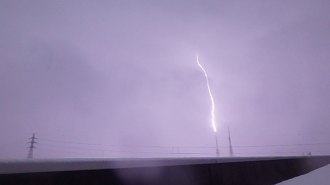 Earth
EarthGamma rays flared as this lightning bolt formed
Thunderstorms are known to generate gamma rays, the highest energy radiation on Earth. But pinning the burst to a specific bolt is new.
By Sid Perkins -
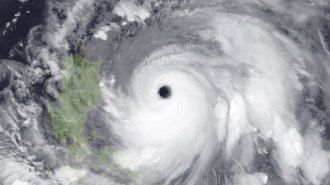 Artificial Intelligence
Artificial IntelligenceA new AI-based weather tool surpasses current forecasts
The AI tool used machine learning to outperform current weather simulations, offering faster, cheaper, more accurate forecasts.
-
 Physics
PhysicsScientists used a levitating magnet to hunt for dark matter
The quantum-based magnet technique could allow scientists to spot ultralight dark matter particles.
-
 Health & Medicine
Health & MedicineFDA significantly limits access to COVID-19 vaccines
The new framework unveiled May 20 says new COVID-19 shots should go only to those ages 65 and up or with underlying medical conditions.
-
 Health & Medicine
Health & MedicineBiden’s prostate cancer is incurable, but it is treatable
Experts explain the science behind Biden's advanced prostate cancer diagnosis, including how common it is and what treatments are available.
By Meghan Rosen